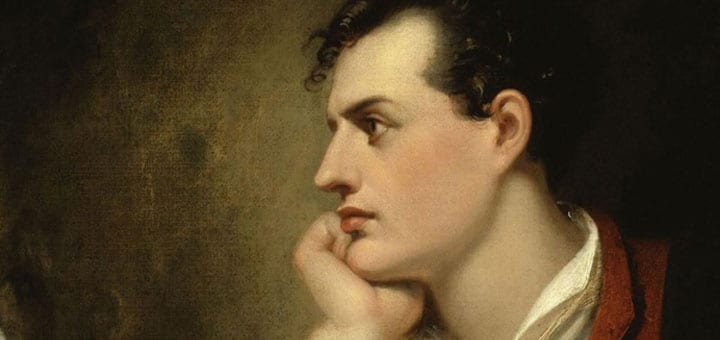
Image management is an age old problem, and many of the strategies and concerns evident today have been around a lot longer than you might think. Lord Byron (1788-1824), a Romantic poet, found fame, fortune, and notoriety for his exploits and writing at the beginning of the nineteenth century. On the sensation caused by the publication of Childe Harold’s Pilgrimage, Byron pithily remarked: “I awoke one morning and found myself famous”. The poem sold out in three days (a feat unthinkable for a poem now!) and his following works went on to be mammoth bestsellers, with The Corsair selling 10,000 copies in its first day alone.
Ever after this rise to fame Byron faced intense interest from the public, with an unprecedented focus on the man himself, even more so than on his work. It was one of his many lovers, Lady Caroline Lamb, who delivered the winning sound-bite on his character, declaring him “mad, bad, and dangerous to know”.
Throughout his life, Byron endured numerous sensational sex scandals beyond that of even the most tawdry tabloid favourites of today, including suspicions of homosexuality, illicit affairs with married women, and fathering his half-sister’s child. In the wake of such public interest, it is unsurprising that the Byron brand required some management. Like Miley Cyrus, or Kim Kardashian today, Byron did not always shy away from controversy, but revelled in his bad boy image, fuelling further public excitement.
He waded into the most heated political and artistic debates; his maiden speech in the House of Lords vehemently defended those revolting in Nottinghamshire, and he entered the Elgin Marbles dispute, savaging Lord Elgin as a thief who had taken what even “tyrants left to stand”, in reference to his removal of the Pantheon Marbles from a Greece under Turkish occupation.
Like Joanne Lumley fighting for the Ghurkhas, or Jamie Oliver campaigning for the sugar tax, Byron attached himself to worthy causes, and would meet his death after joining the Greece war for independence. Byron ensured that no matter what the talk of the town was, his name was attached to it, and displayed a knack for publicity stunts equal to that of the most consummate PR professional. If Byron was alive today he would definitely be trending on Twitter.
Byron may be considered the first modern celebrity. He was confronted with many of the same problems, and employed many recognisable PR tactics. PR is not such a new development, as you might think.
